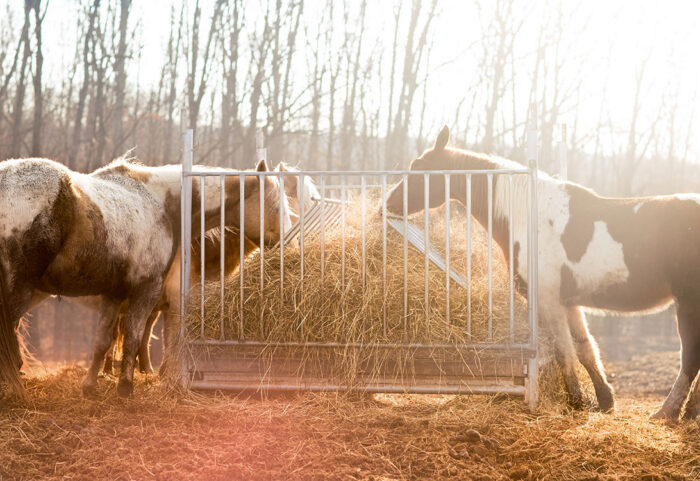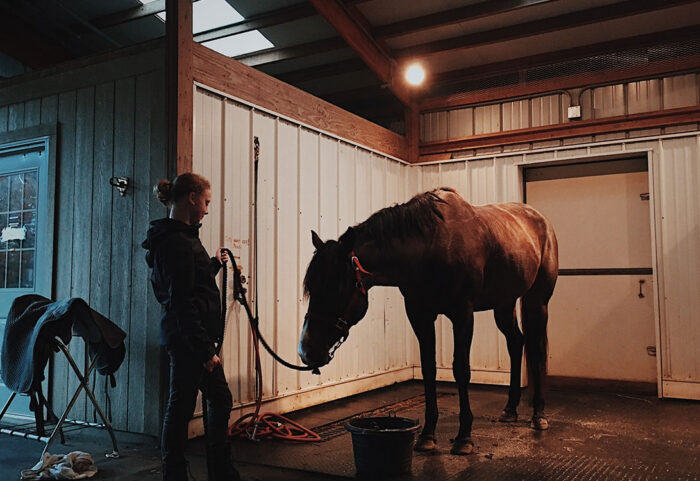Common Vital Signs You Should Know On Your Horse
While your veterinarian will be able to provide you with an accurate reading and interpretation of your horse’s vital signs, a basic understanding can help inform positive health decisions in a pinch. Below, we’ll share common vital signs and normal ranges you should know to keep your horse safe.
Common Horse Vital Signs
Here are some of the most common vital signs for horses along with how to get a clear reading to ensure that your equine companion is safe.
Heart rate: A normal heart rate is one of the most important indicators of health for most animals, including horses. This is most easily checked with a stethoscope though you can also feel your horse’s pulse directly under the jaw bone. Foals tend to have a more rapid pulse, and more athletic horses may have a lower resting heart rate. Typical adult horse heart rates fall between 30 and 45 beats per minute. Keep in mind that heart rate can also rise in unfamiliar or stress inducing situations.
Temperature: While checking your horse’s temperature is a bit of a process, it’s one of the best indicators of your horse’s health. The normal range for horse’s temperature is between 99.5 to 101.5 degrees Fahrenheit though it can be higher after heat exposure or strenuous exercise. Temperature can be measured by inserting a thermometer into the rectum of the horse. The thermometer should be held to prevent it from becoming lost. Be sure to lubricate the tip of the thermometer as well.
Mucous Membranes: Healthy horses’ gums should be moist and have a healthy pink color. You should also be able to press your fingers on a horse’s gums, and have the point of pressure return to its original color within 1 to 2 seconds.
Note that every horse is different, so it’s a good idea to take diligent notes on any individual horse’s vital signs. This way, you’re able to understand your horse’s changes relative to his health history which is much more informative than using general average sign ranges.
Other Health Indicators
It’s important to note that vital signs aren’t the only true indicators of your horse’s health. Here are a couple of other important factors to take into consideration while monitoring your horse.
Demeanor: You know your horse better than anyone else. Alarm bells should be raised whenever your horse is continuously acting out of character. When in doubt, have your horse checked out by a veterinarian you trust. Analyzing vital signs can be helpful, but they don’t always give you the full picture of what your horse might be experiencing.
Appetite: Decreased appetite can be emblematic of a greater underlying problem like influenza or West Nile virus. If your horse has a decreased appetite, be sure to check his temperature as soon as possible. Should the temperature be outside of the normal range, this could be indicative of an active infection.
Bathroom Habits: Healthy horses naturally pass manure up to 12 times a day. Urine should be fairly clear with a slight tan tinge.
Hair Coat: A horse’s coat is an excellent indicator of health. Healthy horses have shining, glowing coats. Horses with dull coats may need a change in diet to address these deficiencies.
As responsible horse owners, it’s important to understand the vital signs associated with these wonderful animals. Hopefully, these pointers make it easier for you to monitor your trusted steed’s health. Enjoy spending time with these majestic animals!


